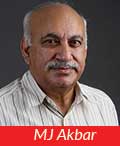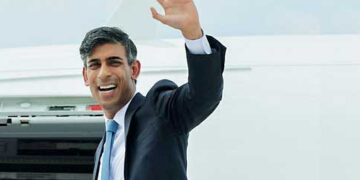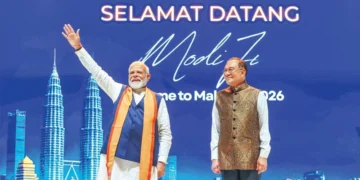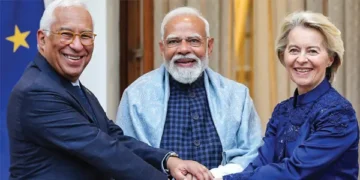 RISHI Sunak, the accidental prime minister of Britain lost his job because he is richer than the King of England; pays just 23 per cent tax instead of the 45 per cent bracket for millionaires through a fiddle; has no clue about the deep emotional history of Britain and the heroism of its masses during World War II and the existential struggle against Nazi Germany; is careless about the crime wave epidemic in London affecting ordinary people; and clueless about the remarkable fact that the only commodity whose price has not risen in the past 14 years of Tory rule is cocaine. Cocaine cost £50 a gram in 2010; it is £50 a gram in 2024.
RISHI Sunak, the accidental prime minister of Britain lost his job because he is richer than the King of England; pays just 23 per cent tax instead of the 45 per cent bracket for millionaires through a fiddle; has no clue about the deep emotional history of Britain and the heroism of its masses during World War II and the existential struggle against Nazi Germany; is careless about the crime wave epidemic in London affecting ordinary people; and clueless about the remarkable fact that the only commodity whose price has not risen in the past 14 years of Tory rule is cocaine. Cocaine cost £50 a gram in 2010; it is £50 a gram in 2024.
The price of everything else from food to fads has inflated to circus proportions. The personal residence of the Sunaks is a manor in the countryside with a private lake and heated swimming pool for which the local electricity network had to be upgraded, a privilege reserved for those who rule the land in the name of democracy. From the perspective of the commoner, the Sunaks slummed it out in 10 Downing Street only because of the job.
Faith in egalitarianism
The voter would not normally mind this so much, for the class system was refined if not invented in Britain. The British are not communists. If they can tolerate the wealth of a monarch, they can coexist with the bank account of a prime minister. But they have a deep and abiding belief in egalitarianism and the rule of law. They do not like to be cheated. They will not tolerate a millionaire’s tax diddle. Violent insurgency has always been a trifle impolite in their scheme of things; they prefer the infinitely more civilised option of booting out the incumbent through the ballot box. Robert Palmer, Executive Director of an organisation called Tax Justice, reflected general opinion when he said he was “shocked” to learn that Sunak had paid only half-a-million as tax on an annual income of £2.33 million, when he should have paid roughly double that. Till 2022, Sunak retained his status of ‘permanent US resident’ not because he wanted to live in America but because he did not want to pay British tax. He relinquished the dodge only under pressure. In other news, he “forgot” to raise capital gains tax when in charge of Britain’s finances. His wife Akshata Murty, daughter of a famous Indian billionaire, remained a non-domicile even after her husband became Cabinet Minister and Prime Minister. When a ruffled media broke the story, she “promised” to pay the full British tax “in the future”. Unsurprisingly, that future never arrived.
The only ‘deprivation’
London journalists are as hard-boiled as a swan’s egg left in an oven, and as unsentimental as a sergeant major with a casualty list. The media cartoons, bitter as a wasp bite, laughed with the usual twist of cruelty when Sunak, asked if he had faced any deprivation as a child, replied that he had been denied Sky TV. Reporters on the election beat have been stunned by the rage against an elitist Prime Minister who does not quite understand that entitlement can get you hired by a cosy cabal of peers but cannot keep you in this job.
According to Sunday Times, Sunak appeared to “physically recoil” when a staff member at a pottery factory in the Cotswolds shouted that “he should tax millionaires more”. No prizes for guessing the identity of the millionaire in question. This august newspaper, which likes to keep its editorial voice calm, wrote that Sunak has looked embattled and “cursed”, a harsh but accurate judgment.
In the more studious realm of books, Michael Peel, back home after 13 years as foreign correspondent, or through the Tory years, has described contemporary Britain as trapped in “dysmorphic disorder” and “mythomania”, according to a published review. These are arduous terms for selfinflicted chaos. Tom Peck, writing in Times, describes how three women positioned “directly behind the Prime Minister” for the benefit of the cameras at a public event “provided a valuable public service”. One of them reacted to Sunak’s warning against a Labour supermajority by clenching her teeth; the second managed to “pull off an eye-roll that very clearly said, ‘Erm, it won’t actually mean anything will it, Prime Minister, because that term, supermajority, doesn’t actually mean anything does it, not in this country anyway’.” As for the third lady, did her “eyes flash with sudden menace?”
Bets on losing
The pain points of the electorate were being captured on routine stops along the campaign trail. Conservative candidates had been betting against themselves, which means on losing their seats, which may be odd, but the odds are good when the bets are placed. Might as well gain something from the wreck. This culture of despair was augmented by senior Tories.
They no longer asked voters to bring them back to power but to curtail a humongous Labour majority. On the last day of speeches, Sunak was pleading for a hung Parliament, not a majority. A veteran Conservative columnist, Matthew Parris, declared impending defeat with typical British sangfroid: “This Thursday I shall do something I haven’t done on election night in half a century. I shall switch off my TV, radio and phone and go to bed.”

































